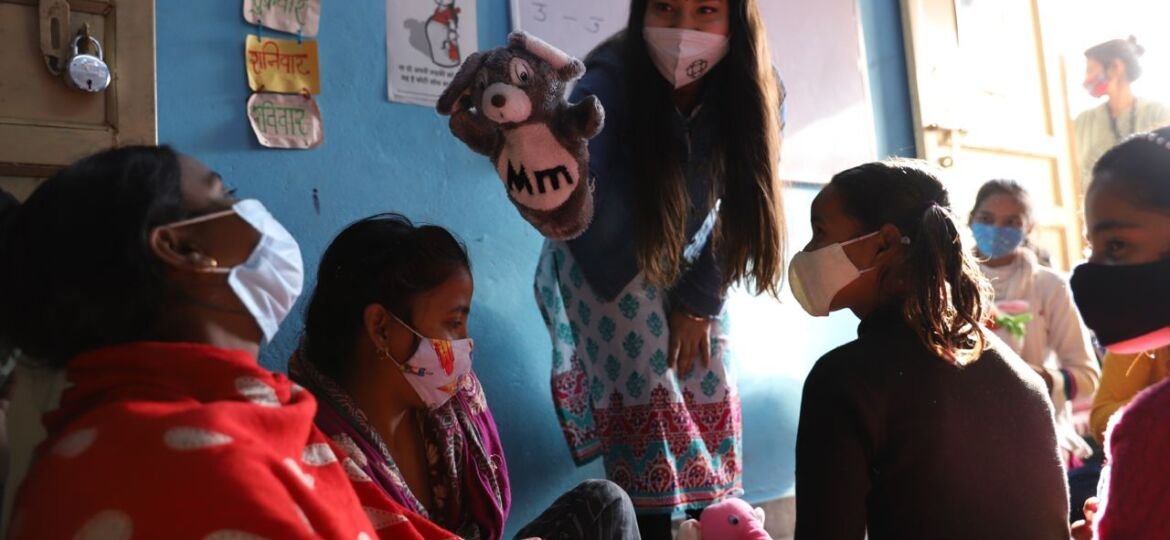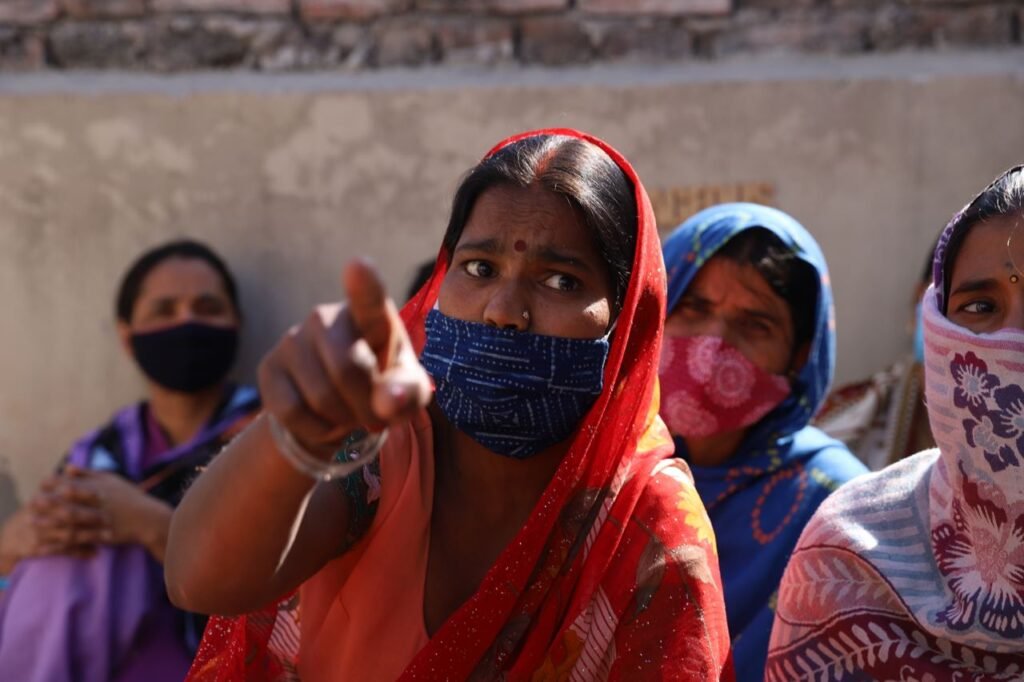
Author: Nishtha Kapoor
It’s a movie screening day at Protsahan’s Girl Empowerment Centre. The girls gathered in the hall area and sat quietly facing the LED screen while they waited patiently for Didi to start the film. What movie is it? What is it about? How long is it? The girls started asking questions because they were eager to know what would happen next. Their curiosity was piqued, and they leaned in closer, waiting for an answer with bated breath.
Soon the lights were switched off, and the movie started. Period. End of Sentence. is a 2018 documentary short film directed by Rayka Zehtabchi about Indian women leading a menstrual revolution in rural India. The film won the Best Documentary Short Subject at the 91st Academy Awards, making it the first Oscar win for a film produced by Netflix. It also sheds light on the taboo surrounding menstruation in India and how it affects women’s lives.
After the film ended, we had a conversation with the girls about the taboos around periods in their community. The conversation was enlightening as the girls shared their personal experiences of being shamed during their periods. It highlighted the urgent need for education and awareness to break down these harmful stigmas within families and communities.
Sexual and Reproductive Health and Rights (SRHR) are essential aspects of human well-being and dignity. However, to effectively address SRHR issues, it is crucial to understand and embrace the power of local wisdom and grassroots perspectives. In this blog, we will explore the significance of local knowledge and experiences in shaping SRHR interventions, highlighting the need for culturally sensitive approaches that resonate with communities at their core.

As a grassroots organization working with communities on these deep-rooted beliefs for the last 13 years, here are our top 4 learnings or key takeaways:
- Contextualize your content: For communities with a lack of wash facilities and toilets, using menstrual cups or biodegradable pads is not a realistic solution. These communities are still using traditional methods, such as cloth rags or even leaves, during menstruation. Provide them with options that are economical and easily accessible. Communities differ in terms of resources, practices, and cultural beliefs. It is essential to tailor SRHR interventions to the specific needs and realities of each community. By considering economic factors, accessibility, and local customs, we can provide options that are both practical and acceptable. Engaging with the community to understand their existing practices and challenges is key to delivering effective and relevant SRHR information.
- Collaborate with local NGOs: Partnering with local NGOs that have established relationships within the community is invaluable. These organizations possess deep-rooted knowledge and trust, ensuring interventions that are culturally appropriate and responsive to local contexts. By working together, one can foster stronger engagement, build on existing strengths, and implement sustainable SRHR programs that resonate with the community.
- Start from basic; do not assume. During one of our sessions with the girls at Protsahan, one of the girls shared, “Didi, when I first got my periods, I didn’t know how to stick the pad to my innerwear. I put it on the opposite side, due to which the glue got stuck to my pubic hair.” The incident made her feel embarrassed and uncomfortable, and she didn’t know who to turn to for help. This highlights the importance of not assuming prior knowledge or experience and instead starting with basic instructions and building from there. By addressing the basics, we can bridge gaps in knowledge and ensure comprehensive SRHR education.
- Build Best Practices Document: Communities possess a wealth of wisdom derived from their experiences. By engaging with community members, we can gather their insights and create a document of best practices. This collaborative approach acknowledges and appreciates the community’s existing knowledge, promoting a sense of ownership and empowering individuals to share their expertise. This document serves as a valuable resource that reflects the community’s experiences and acts as a guide for effective SRHR interventions. Appreciate everything that they are doing right, and learn with them.
Understanding SRHR from a localized and grassroots perspective is essential for meaningful and sustainable impact. By embracing local wisdom, we can develop culturally sensitive approaches that address the unique challenges faced by communities. Through collaboration, starting from the basics, and building on existing knowledge, we can promote holistic SRHR education and empowerment. Together, let us unveil the power of local wisdom and work towards achieving comprehensive sexual and reproductive health and rights for all.
The documentary, ‘Period: End of Sentence’, mentioned in the blog can be watched on: YouTube, Netflix, and Amazon Prime Videos.
Read More: Menstrual Hygiene Day-Providing Menstrual Hygiene Management (MHM) Infrastructure in Schools

